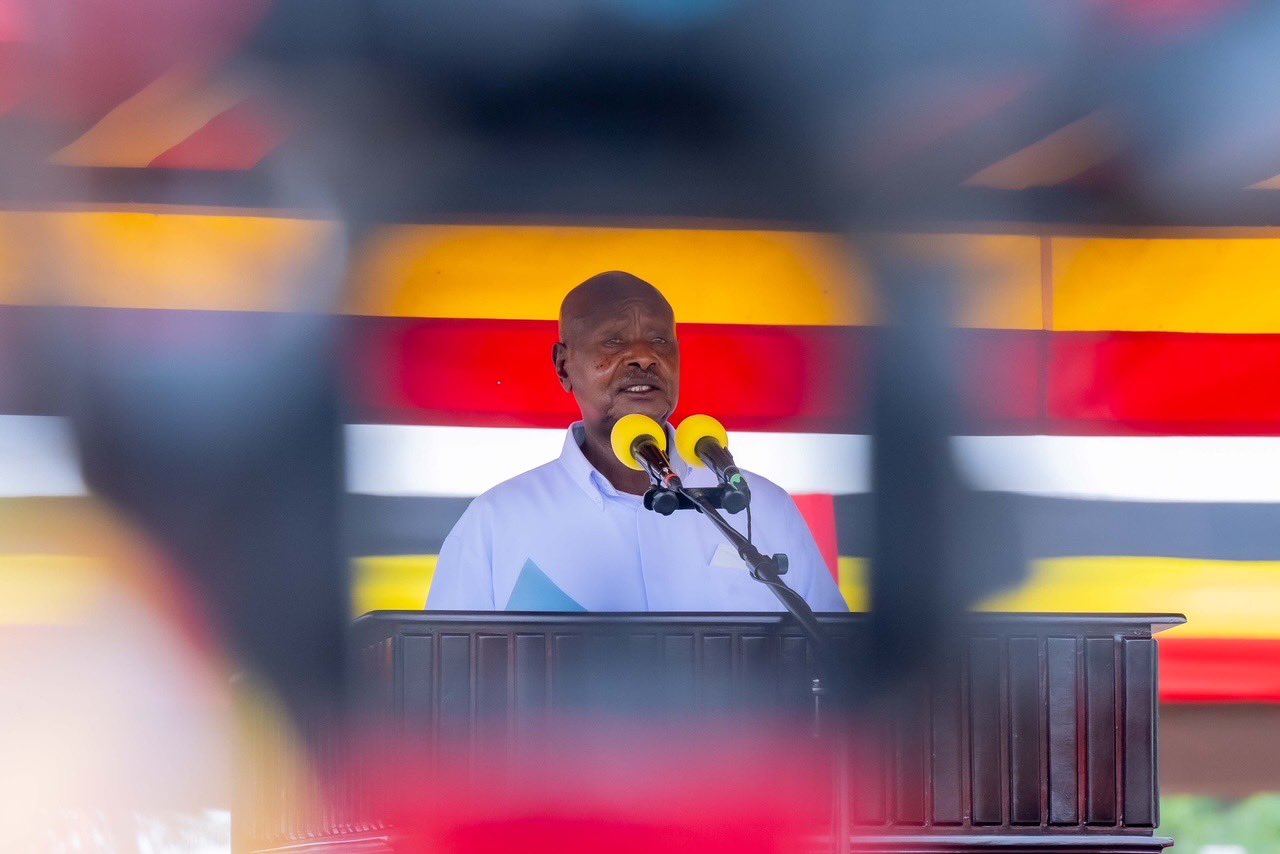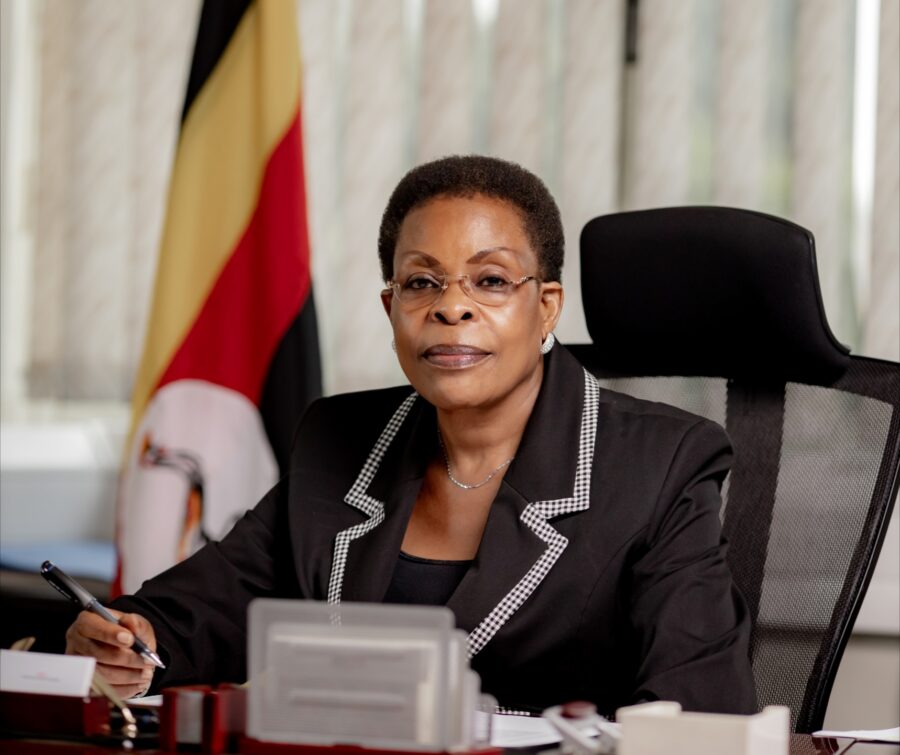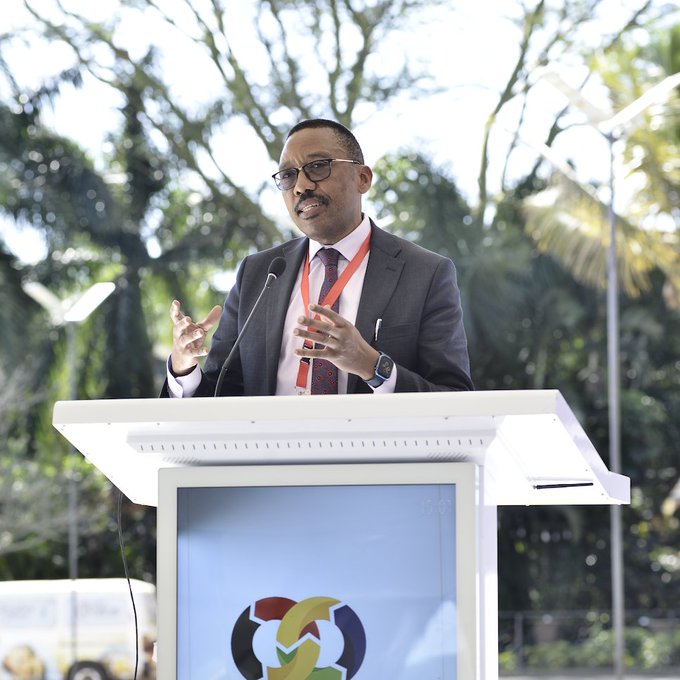The President of Uganda, HE. Yoweri Kaguta Museveni, has touted the expansion of Uganda’s market size beyond its borders, emphasizing the importance of regional and continental trade for the nation’s prosperity.
Museveni made these remarks on October 9th 2024, during the national celebrations marking Uganda’s 62nd anniversary of independence, held at Busikho Primary Teachers’ College grounds in Masafu Town Council, Busia District. This was the first time Busia District had hosted a national event of this scale.
As the chief guest at the celebration, President Museveni delivered a speech aligned with the theme of this year’s event, “Independence Day: A Recommitment to Secure and Fortify Our Destiny.”
In his address, Museveni stressed the significance of market expansion for Uganda’s economic growth, calling for deeper integration across East Africa and the African continent at large.
He reflected on Uganda’s historical economic structure, describing the country’s economy at the time of independence as a “colonial enclave” reliant on a few key sectors: coffee, cotton, copper, tobacco, tea, and tourism—referred to as the “3 Cs and 3 Ts.” These sectors, he explained, formed a limited money economy, leaving the majority of Ugandans in poverty, engaged in subsistence agriculture and outside of formal economic activity.
“At independence, only 9% of Ugandan homesteads were part of the money economy, while 91% were engaged in subsistence activities,” Museveni said. “This meant poor housing, lack of education, poor health services, and widespread poverty.”
The President pointed out that this economic imbalance, coupled with divisive identity politics based on tribes and religion, contributed to instability, leading to events such as the 1966 constitutional crisis and the 1971 Idi Amin coup.
A Focus on National and Regional Integration
Central to Museveni’s message was the need for Uganda to continue its path toward economic recovery and development through regional integration. He underscored how Uganda’s different regions needed each other for prosperity, and that tribal or religious divisions only hindered wealth creation.
However, as the country’s economy grew, Museveni highlighted that Uganda alone was not sufficient to sustain long-term economic growth. “We needed East Africa, and we needed Africa for a bigger market,” he stated, explaining the NRM’s second ideological principle: Pan-Africanism.
He elaborated that regional cooperation, through initiatives like the East African Community (EAC) and the African Continental Free Trade Area (AfCFTA), was crucial for Uganda’s economic transformation and growth. The expanded market size would allow Uganda to sell its goods and services to a wider customer base, thereby increasing national wealth and fostering prosperity.
Museveni also touched on the importance of socio-economic transformation as a third pillar of Uganda’s ideology. He noted that in order to transition from a subsistence economy to a modern economy, there was a need for structural changes in society, including industrialization, modern agriculture, and the development of services.
These transformations, he said, would ensure that Ugandans can produce goods and services of high value, which are essential for increasing the country’s wealth.
Infrastructure as a Catalyst for Growth
In addition to his call for greater regional integration, Museveni identified infrastructure development as a key factor in Uganda’s continued economic success. He highlighted the development of railways as a means of lowering transport costs and improving business profitability. “With the right infrastructure in place, especially in transportation, we can boost trade both within Uganda and with our neighboring countries,” he said.
Museveni also pointed to Uganda’s petroleum resources as an opportunity to finance the country’s infrastructural transformation, which would further enhance the nation’s ability to participate in regional and international markets.
He expressed confidence that Uganda’s growing oil sector, combined with strategic infrastructure investments, would help the country move away from dependence on a few cash crops toward a more diversified and industrialized economy.
As Uganda marked its 62nd anniversary of independence, the event in Busia was not just a celebration of the country’s freedom but also a recommitment to its socio-economic transformation.
With the President’s focus on strategic planning, regional integration, and continued focus on infrastructure development, Uganda is set to achieve its vision of economic inclusivity and prosperity for all its citizens.
Do you have a story in your community or an opinion to share with us: Email us at Submit an Article









